
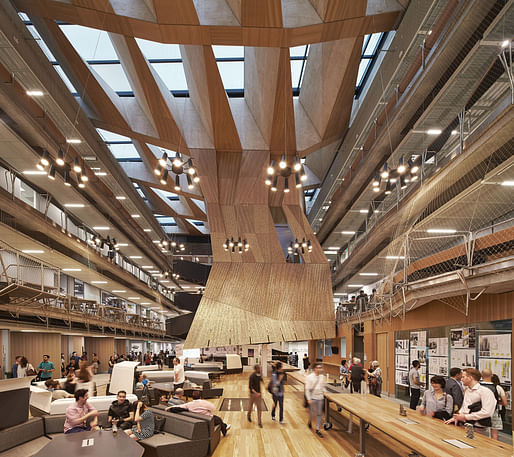
The Cooper Hewitt, Smithsonian Design Museum has announced the winners of the 2022 National Design Awards, now in its 23rd edition.
The program was established in 2000 as part of the White House Millennium Council and honors the best of the best American designers making impacts in the public sphere in multiple disciplines and across nine separate awards categories.
“This year’s National Design Award winners reflect the central role that design can play in addressing some of the most urgent needs of our time,” Maria Nicanor, the museum’s new director, said in the award announcement. “Attuned to increasing social and planetary challenges, all awardees, regardless of their category, have a regenerative approach to design work that takes into account our shared future. I’m grateful to our thoughtful jury this year for their selection. Their deliberations revealed that behind each winner is a philosophy of work that expertly weaves together technological innovation while elevating traditional craft, or that prioritizes preservation and reparation processes, ultimately designing for citizens, and not consumers — a reason for hope in today’s complex world if there ever was one.”
This year’s National Design Award recipients are:
Scroll down to see the jury comments about each individual awardee.
Design Visionary: Nader Tehrani
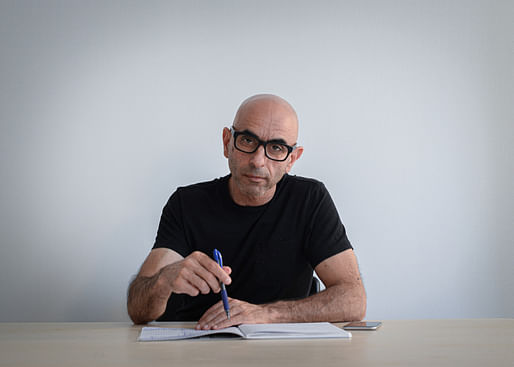
Jury comment: "The Design Visionary award, recognizing an individual, company or organization who has made a profound contribution to advancing the field, is given to Nader Tehrani. Tehrani is the founding principal of NADAAA, a practice dedicated to the advancement of design innovation, interdisciplinary collaboration and an intensive dialogue with the construction industry. He is also former dean of the Irwin S. Chanin School of Architecture at the Cooper Union. Tehrani’s work lies in building bridges between education and practice, creating healthy institutions to ensure equity, democracy and education for all. Major clients have included: The Metropolitan Museum of Art, Historic New England, Harvard University, Northeastern University, Massachusetts Institute of Technology, Rhode Island School of Design, Georgia Institute of Technology, University of Toronto and the University of Melbourne. For his contributions to architecture as an art, Tehrani was the recipient of the 2020 Arnold W. Brunner Memorial Prize from the American Academy of Arts and Letters. His work has been recognized with notable international awards in architecture, including the Cooper Hewitt 2007 National Design Award in Architecture as part of Office dA and 18 Progressive Architecture Awards, an unprecedented feat. He has also served as the William A. Bernoudy Architect in Residence at the American Academy in Rome."
Climate Action: WEDEW by David Hertz
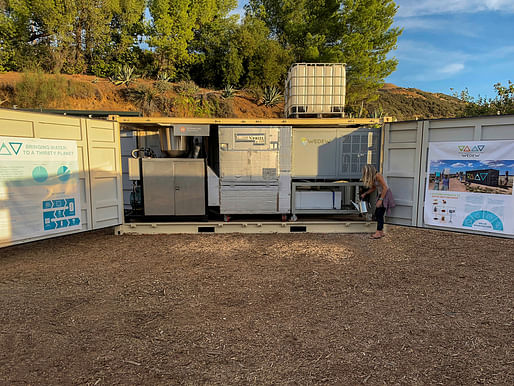
Jury comment: "The Climate Action award recognizes a design project for its significant contributions to addressing the urgency of the global climate crisis. The winner of this year’s award is WEDEW. Designed by architect David Hertz, WEDEW is a self-contained, transportable and sustainable water and energy generator that converts biomass into essential human resources. WEDEW operates at the intersection of food, energy, water and carbon transformation. The processes of biomass gasification and atmospheric water generation have been combined in a single system that creates valuable resources while closing waste streams. WEDEW expands systems thinking beyond the container to entire communities. It operates as a resilience hub allowing micro-grids and micro-economies to form. WEDEW can successfully produce over 2,000 liters of water in 24 hours at the cost of a half-cent per liter. Additionally, it creates renewable energy and potable water with the waste heat recovered for non-refrigerant cooling. Through his work at his Studio of Environmental Architecture, Hertz strives to lessen the built environment’s impacts on the most vulnerable communities and the natural world."
Emerging Designer: Emily Adams Bode
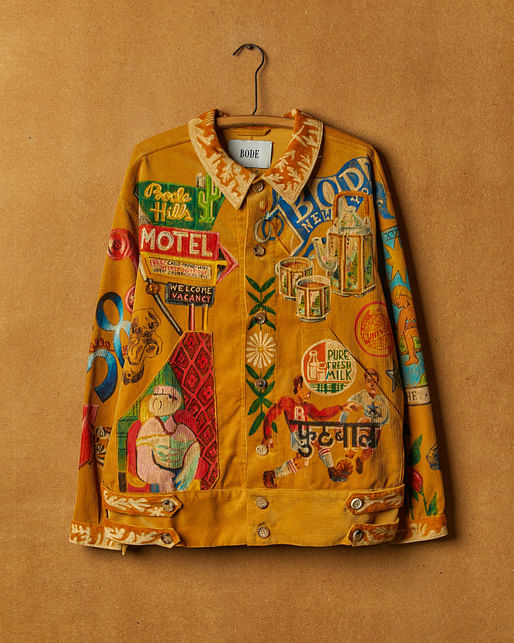
Jury comment: "The Emerging Designer award is given in recognition of a designer, firm or organization who has demonstrated profound talent in the early stages of their career. The 2022 Emerging Designer award is presented to Emily Adams Bode. Bode launched her eponymous luxury menswear brand Bode in 2016. Bode expresses a sentimentality for the past through the study of personal narratives and historical techniques. Modern workwear silhouettes united with female-centric traditions of quilting, mending and appliqué shape the collections. Bode was the first female designer to show at New York Fashion Week: Men’s, with a collection of one-of-a-kind garments composed entirely of antique textiles. Today, with her unique pieces and larger collection of historical reproductions, Bode continues to reinvigorate American menswear through the art of storytelling and preservation. Bode has brought the conversation about sustainability to the forefront of the fashion industry. The brand’s commitment to the preservation of craft and materials, and its commitment to making and repairing clothing for generational use, are Bode’s way of righting the industry’s imbalance and addressing overconsumption."
Architecture / Interior Design: Rural Studio
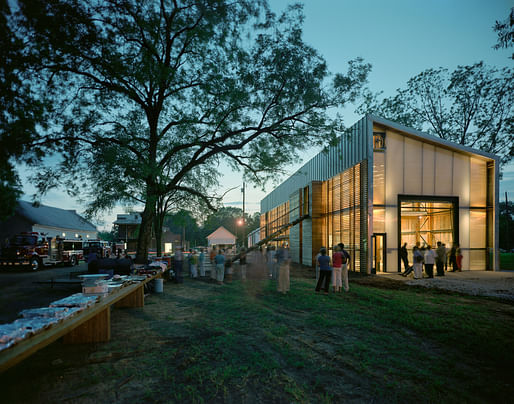
Jury comment: "Given to an individual or firm for their contributions to the built environment that advance the understanding of spatial experiences, this year’s National Design Award for Architecture / Interior Design goes to Rural Studio. Through almost three decades of hands-on, place-based teaching and learning, Rural Studio is regarded as one of the oldest, most influential and well-respected design-build programs in the world. It is located in Hale County, Alabama, and led by professor and director Andrew Freear. As part of the School of Architecture, Planning and Landscape Architecture at Auburn University, the core mission of Rural Studio is the education of architecture students who live on-site and design and build structures for residents and communities in the under-resourced, persistently impoverished rural region known as the Black Belt. Rural Studio has educated over 1,200 students who have designed and built more than 200 projects in the West Alabama Black Belt. The design-build projects are driven by research into efficient, healthful housing along with the vital community systems necessary to support sustainable rural living. Rural Studio continually questions what should be built, rather than simply what can be built."
Communication Design: Giorgia Lupi
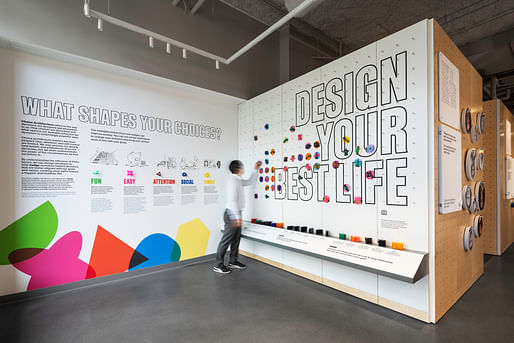
Jury comment: "The Communication Design award recognizes an individual or firm for the impactful use of design at the service of information sharing, messaging and overall communication. The 2022 recipient is Giorgia Lupi, an information designer and a partner at Pentagram, where she works to create a deeper understanding of the world through data, stories and design. One the world’s leading data-visualization experts, Lupi has pioneered and popularized a philosophy of information design called 'data humanism.' She designs engaging data-driven narratives across print, digital and environmental media that create new insight and appreciation of people, ideas and organizations."
Digital Design: Felecia Davis
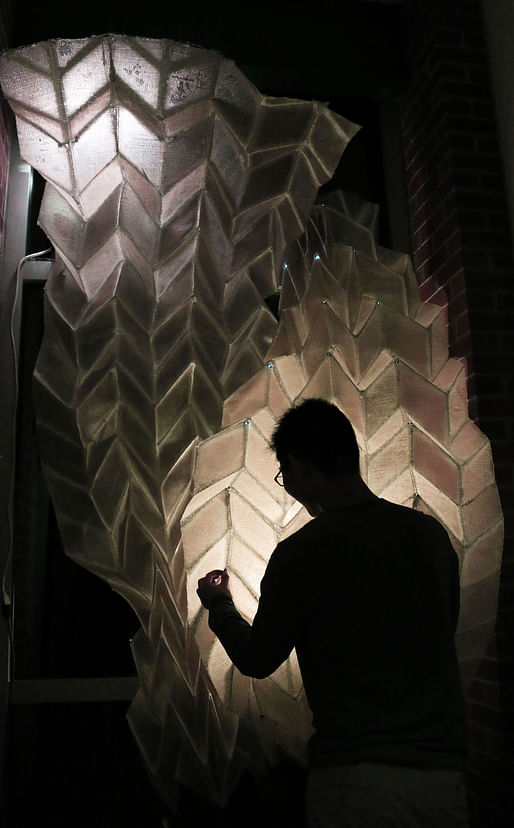
Jury comment: "The Digital Design award, given to an individual or firm for the innovative design of digital products, environments, systems, experiences and services, honors Felecia Davis. Davis is a designer and researcher working to reimagine how people might use textiles in their daily lives and in architecture through computational textiles. Computational textiles respond to their environment via programming, embedded sensors and electronics, or by designers using the changeable properties of the materials themselves to communicate information to people. Davis develops computational methods and design in relation to specific bodies in specific places engaging specific social, cultural and political constructions. She is an associate professor at the School of Architecture at Pennsylvania State University and director of SOFTLAB@PSU. Davis’ work, featured by PBS in the Women in Science Profiles series, connects architecture, art, science, engineering and design. Her work was part of MoMA’s exhibition 'Reconstruction: Blackness and Architecture in America.' She is a founder of the Black Reconstruction Collective, a not-for-profit that supports design work about the Black diaspora. Davis is principal in her own design firm, FELECIADAVISTUDIO. She was recently awarded a 2022 SOM Foundation Fellowship for a collaborative project ‘MycoKnit’ and a 2022 Emerging Voices Award from the Architectural League of New York."
Fashion Design: Willy Chavarria
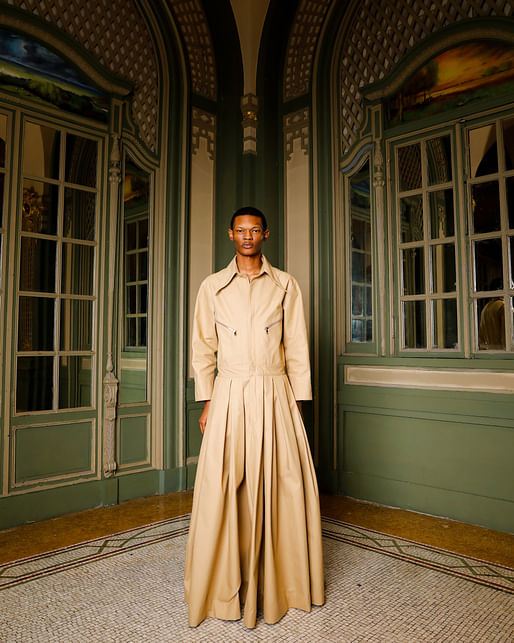
Jury comment: "The Fashion Design award is given to an individual or firm for the forward-thinking design of apparel, accessory, jewelry, footwear and textiles. The recipient of the 2022 National Design Award for Fashion Design is Willy Chavarria. Chavarria launched his label in 2015 with a sensitive and cinematic approach. Chavarria takes content from his own upbringing in both agricultural fields and housing projects of the San Joaquín Valley in California and combines it with a high-fashion sensibility and love for luxury that he developed during his years designing for Ralph Lauren. He considers his clothing a way to connect personally with the feelings of today’s global citizens. The clothing is intended to be empowering and expressive in its approach to silhouette and fabrication. His concept blends the emotion of art and modern politics into a reactionary story of the human will. The collection has a hard edge with a strong message of anti-hate sentiment, including bold statements about racial, economic and sexual identity."
Landscape Architecture: Kounkuey Design Initiative
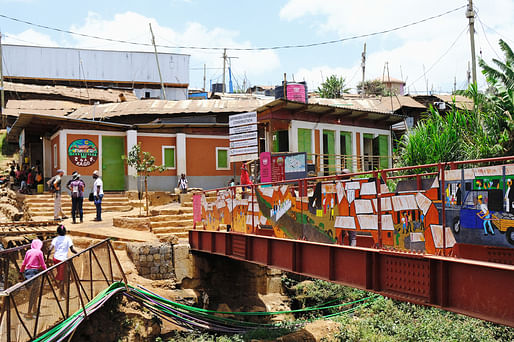
Jury comment: "The Landscape Architecture award recognizes an individual or firm for their contributions to the integration between the built, urban and natural environments and for advancing the understanding of spatial experiences. This year’s award is presented to Kounkuey Design Initiative (KDI), an interdisciplinary practice committed to building a more just public realm: one that is complete, inclusive and resilient. Rooted in landscape architecture, KDI works across urban planning, policy, research, architecture and civil engineering to expand equity and inclusivity in places that have long been overlooked or actively harmed by traditional design and planning approaches. Founded in 2006 by six then-students at Harvard’s Graduate School of Design, KDI has grown into a 60-person team led by Chelina Odbert, working from four offices: Los Angeles; Coachella Valley, California; Nairobi, Kenya; and Stockholm. KDI works in places where socioeconomic inequity is extreme, environmental risks are high and public investment is historically low. To address these challenges, the firm designs landscapes of inclusion, including parks, streetscapes and climate-resilient infrastructure. It also advocates for more equitable public policies, undertakes original research to account for injustices in the built environment and creates long-term plans, giving people more equitable access to a thriving public realm, regardless of race, income, gender, sexual orientation or housing status."
Product Design: CW&T

Jury comment: "The National Design Award for Product Design, given to an individual or firm for the design of goods, furniture, lighting and materials, is awarded to CW&T. CW&T started as and remains the two-person design practice of Che-Wei Wang and Taylor Levy. Over the past 13 years, their work has spanned from interactive software to human-scaled tools that enhance people’s relationships to work, life and time. The practice centers around an iterative process of sketching, prototyping, testing, writing code, machining parts and building each edition themselves to assess their intuitions around improving everyday experiences. Projects range from devices that alter the perception of time, an electronics curriculum for artists and an astrological compass for space travelers, to objects engineered to last multiple generations. With backgrounds in architecture, film and computer science, the duo met at NYU ITP where they began their scale- and medium-agnostic approach to design. Wang and Levy lecture extensively, and they teach courses on time, electronics, hardware, programming, inflatables and morphology at Pratt Institute, New York University and the School for Poetic Computation. Their pedagogy extends into their Brooklyn home/studio where they host office hours to lend a hand or offer insight to anyone interested in figuring out how to make something themselves."
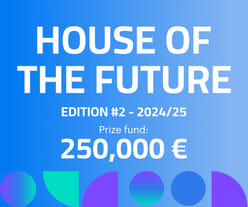
250,000 € Prize / HOUSE OF THE FUTURE 2024/25
Register by Wed, Apr 30, 2025
Submit by Mon, Jun 2, 2025

The Architect's Chair / Edition #3
Register by Wed, Jan 15, 2025
Submit by Tue, Feb 18, 2025

Kinderspace: Architecture for Children's Development #2
Register by Thu, Jan 16, 2025
Submit by Mon, Jun 16, 2025

Land Art Generator Initiative 2025 Fiji: Climate Resilience for Island Communities
Register/Submit by Mon, May 5, 2025
No Comments